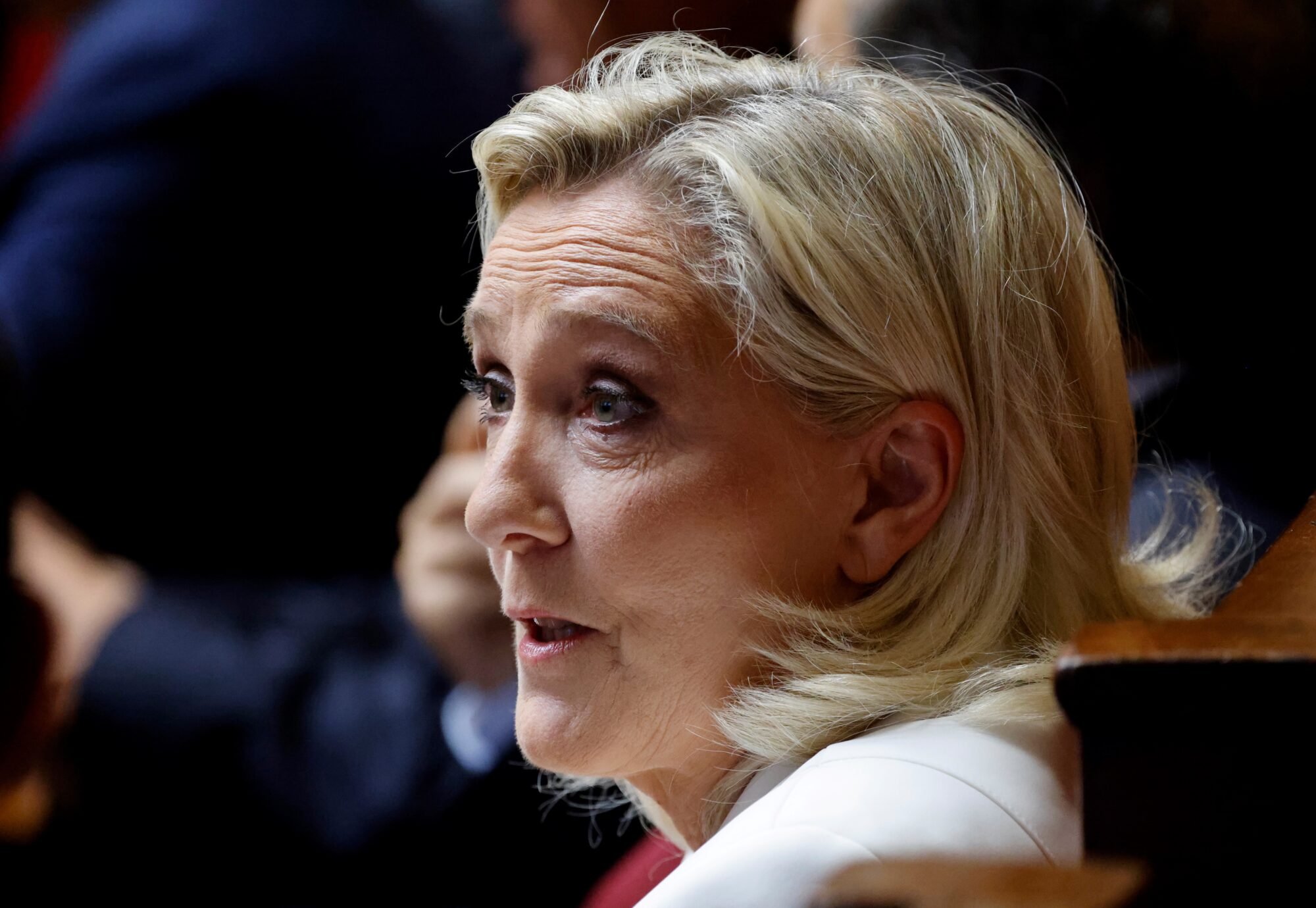
French Rassemblement National (RN) party’s MP Marine Le Pen
LUDOVIC MARIN / AFP
A few days before the Bastille Day celebrations of July 14th, President Emmanuel Macron announced his intention to step up France’s military support for Ukraine—by sending SCALP missiles. This decision prompted questions, and disapproval, from part of the French political class for its recklessness. Marine Le Pen, leader of the Rassemblement National MPs, described the decision as “irresponsible.”
On Tuesday, July 11th, Emmanuel Macron made the following statement:
In view of the situation and the counter-offensive being conducted by Ukraine, I have decided to increase deliveries of arms and equipment and to give the Ukrainians the capacity to conduct in-depth strikes, while maintaining the clarity and consistency of our doctrine. In other words, to enable Ukraine to defend its territory.
The arms shipment is to include Storm Shadow missiles, or ‘SCALP’ in French army jargon, of which there will be roughly 400. These are long-range missiles that are also owned by the UK, which sent some to Ukraine in May.
The announcement of this shipment was immediately followed by a vigorous response from Moscow. “From our point of view, this is a flawed decision with serious consequences for the Ukrainian side, because naturally it will force us to take countermeasures,” said Kremlin spokesman Dmitry Peskov.
For some weeks now, certain opposition figures have been voicing their disapproval of the head of state’s policy of involvement in the Russian-Ukrainian conflict, which they regard as both too arbitrary and solitary. Some MPs and senators, such as the sovereignist Nicolas Dupont-Aignan, see France as heading ever more surely down the road to war and believe that the time has come for a parliamentary vote, given what is at stake. He calls for the use of Article 35 of the French Constitution, which reads:
The declaration of war is authorised by Parliament. The Government informs Parliament of its decision to involve the armed forces abroad, no later than three days after the start of the intervention. It specifies the objectives pursued.
Macron, devenu fou, vient d’annoncer la livraison de missiles longue portée « SCALP » à l’Ukraine.
— N. Dupont-Aignan (@dupontaignan) July 11, 2023
De fait il prend le risque de faire rentrer la France dans une guerre avec la Russie.
Il doit demander, en vertu de l’article 35 de la Constitution, un vote du Parlement !
LR Senator Alain Houpert, a member of the Foreign Affairs and Defence Committee, has announced his intention to vote against the forthcoming military planning act—which provides for an increase in funding for the army—deeming it to be a “blank cheque” for French interventionism on which the French people have not been consulted. “Parliament cannot sign a blank cheque to the president when he refuses to explain France’s position in Ukraine to Parliament. In the face of escalation, we need explanations, we need a vote,” he wrote on Twitter.
There has also been a change in tone on the part of the Rassemblement National. Until now—rather discreet on the question of France’s commitment to Ukraine, so as not to fuel charges of ‘Putinophilia’—Marine Le Pen has this time raised her voice and declared herself openly hostile to sending new weapons in support of Kyiv, which she considers “irresponsible.” In her view, it is time for the head of state to reverse his priorities. “I don’t understand why Emmanuel Macron is not fully focused on organising a peace conference to put an end to this war,” she explained on July 12th, during a visit to northern France.
In the spring of 2022, shortly after the start of the Russian invasion, Marine Le Pen was already worrying about French support “which would make us co-belligerents,” as she explained on BFM TV during the presidential campaign. Since then, she has remained rather discreet on the subject, since a report by the National Assembly’s committee of inquiry into foreign interference has accused her of suspicious links with the Russian regime.
Today, following in the footsteps of Dupont-Aignan and Houpert, she is concerned about the lack of “democratic validation” of what she considers to be nothing less than a disguised entry into the war.
